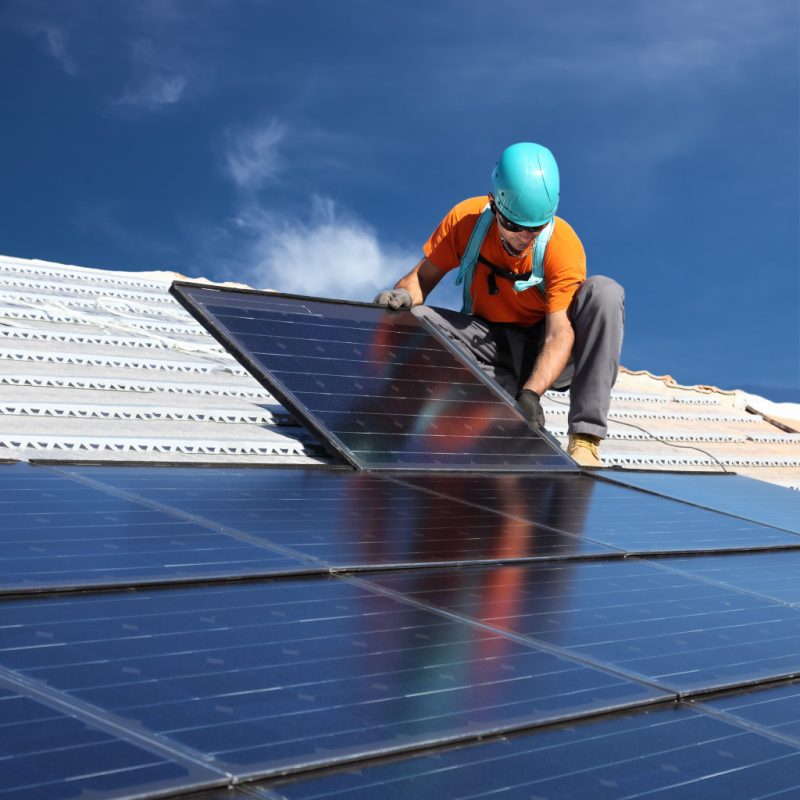Many people don’t realize how much energy their homes consume. According to the U.S. Department of Energy, the average U.S. household spends about $2,200 a year on energy bills. Making your home more energy-efficient is a great place to start if you’re looking for ways to reduce your energy consumption and save money.
There are many ways to make your home more energy-efficient, but not all of them will be right for your home or your budget. Some energy-saving measures are simple and inexpensive, like adding weatherstripping around your doors and windows. Others, like installing solar panels, are more expensive but can also provide long-term savings. No matter what kind of measures you take, there are several advantages to having an energy-efficient home.
Making your house energy efficient
Making your home more energy efficient is a great way to save money. There are many ways to make a home more energy efficient. Here are five of the most effective methods:
- Insulate, insulate, insulate!- One of the best ways to make your home more energy efficient is to ensure it is adequately insulated. This includes both the walls and the attic. Check for gaps and cracks in the walls and have them sealed. Ensure the attic is insulated to keep heat from escaping through the roof. Adding insulation can also help to keep noise levels down.
- Install double-paned windows- Windows are one of the most significant sources of heat loss in a home. Double-paned windows help to keep heat in and cold air out. They also reduce outside noise levels. If you can’t afford to replace all your windows at once, start with the ones most exposed to the elements.
- Use weatherstripping around doors and windowsills- Another way to keep heat from escaping is to use weatherstripping around doors and windowsills. This helps to create a seal that prevents drafts and keeps warmth from escaping.
- Install roof lights- Roof light lanterns are a great way to let natural light into your home and reduce energy costs. They are also a good option for homes that don’t have a lot of windows. They are a well-designed, eco-friendly way to reduce your energy consumption. Plus, they can add to the aesthetic appeal of your home.
- Use solar power- Solar power is a great way to reduce energy consumption and save money. Solar panels can generate electricity, which can then be used to power your home. Solar panels can be costly, but they will eventually pay for themselves through the savings on your energy bill.
- Install a programmable thermostat- A programmable thermostat is a great way to save on energy costs. You can set it to lower the temperature when you are away from home or asleep so that you are not heating an empty house.
- Educate your family about conserving energy- One of the best ways to make your home more energy efficient is to educate your family about conserving energy. Make sure your kids understand the importance of conserving energy. Teach them to turn off lights when they leave a room, unplug electronics when not using them, and close doors and windows in inclement weather.
Advantages of an energy-efficient house
Energy Savings

One of the most obvious advantages of an energy-efficient home is that it can help you save money on your energy bills. The U.S. Department of Energy estimates that homeowners can save an average of 30 percent on their energy bills by making their homes more energy efficient. The amount you’ll save will depend on the efficiency of your home and the climate you live in, but even minor improvements can make a big difference in your energy consumption and your bill.
Environmental Benefits
In addition to saving you money, making your home more energy efficient also has environmental benefits. Reducing the energy you use will help conserve natural resources and reduce pollution and carbon emissions. According to the Environmental Protection Agency, the average household emits about 10 tons of carbon dioxide each year. Making your home more energy efficient can help to reduce this number and do your part to protect the environment.
Improved Comfort
Another advantage of an energy-efficient house is that it can be more comfortable than a traditional house. Homes that are poorly insulated and have drafty windows often have temperature fluctuations that make them uncomfortable to live in. By investing in insulation and sealing up gaps around doors and windows, you can create a more comfortable environment in your home by reducing temperature swings and drafts.
Final thoughts
Making your home more energy efficient has many advantages—it can save you money, help the environment, and improve your comfort level at home. There are many different ways to make a house more efficient, from simple fixes like adding weatherstripping to larger projects like installing solar panels. No matter what kind of measures you take, there are several benefits to having an energy-efficient home.
